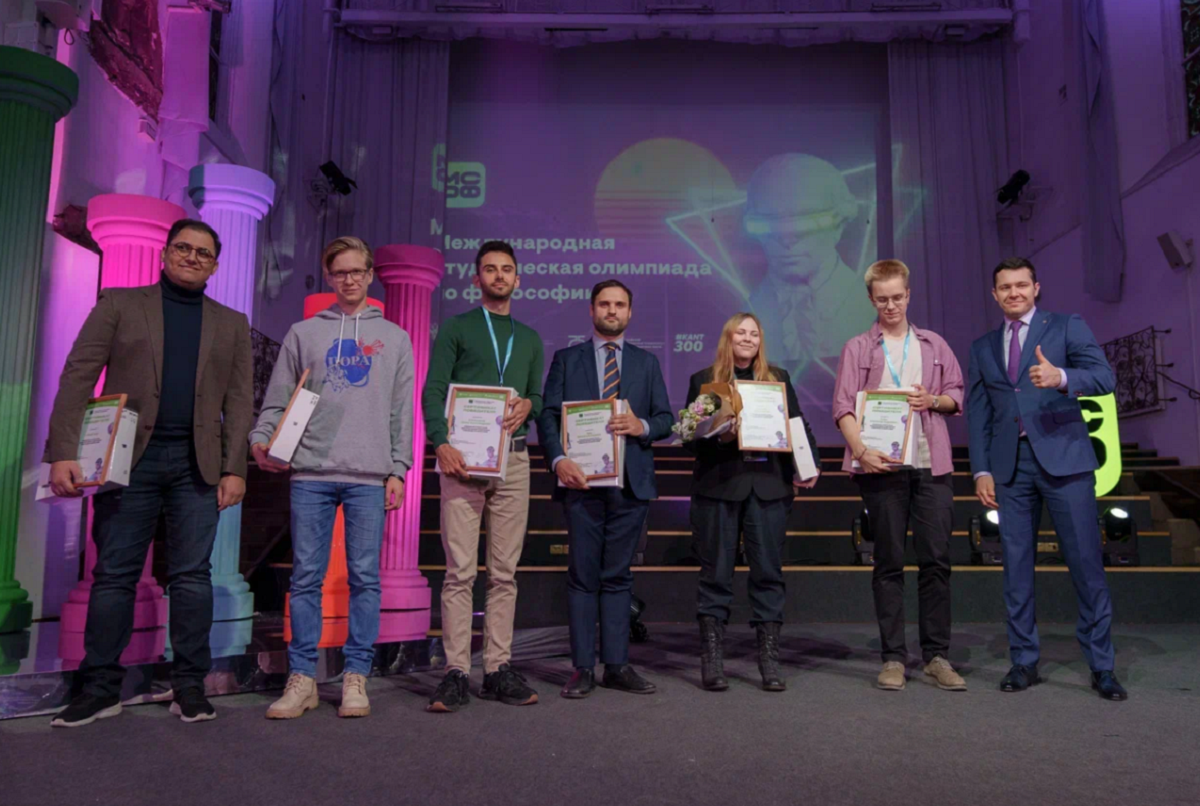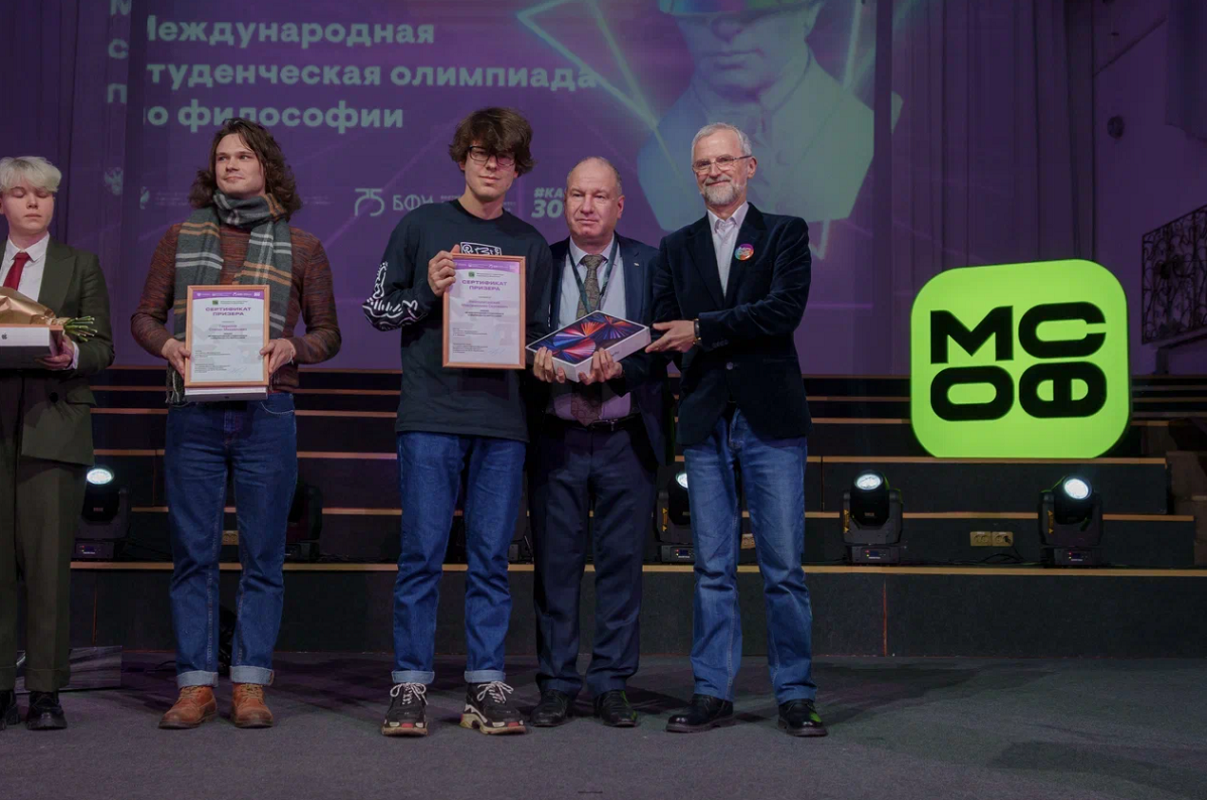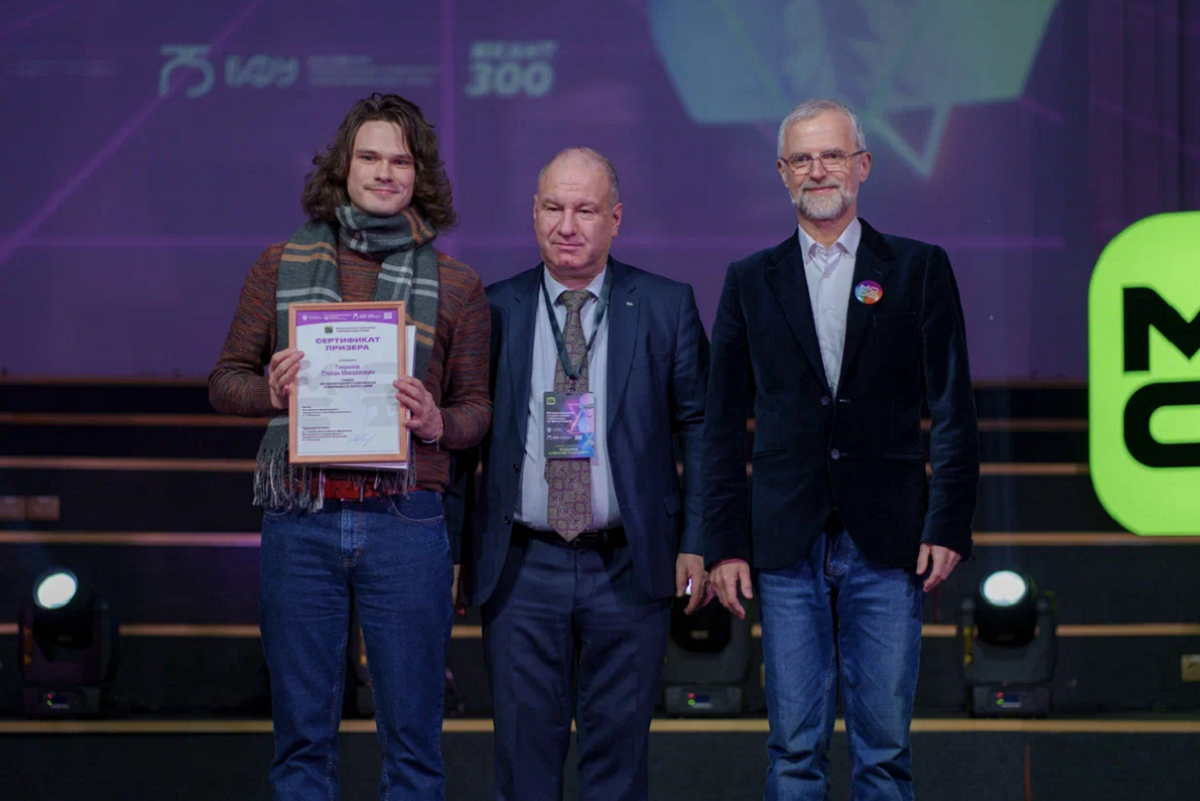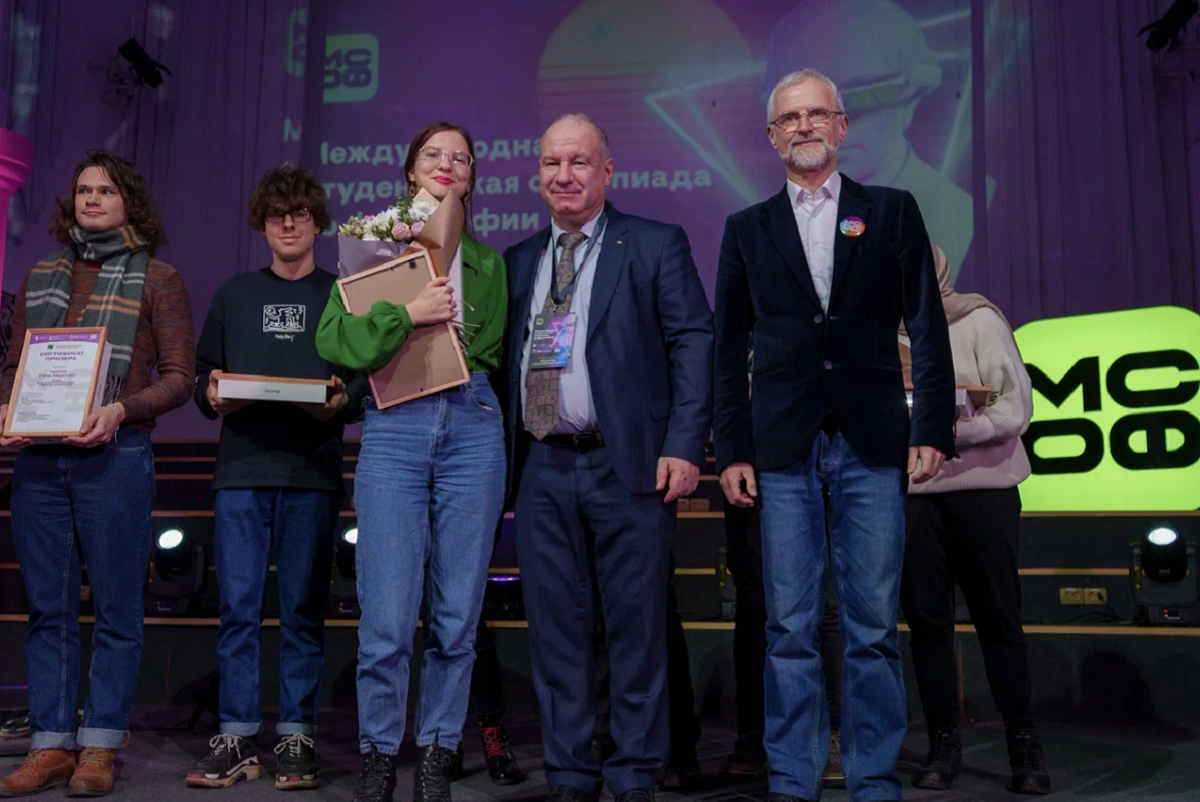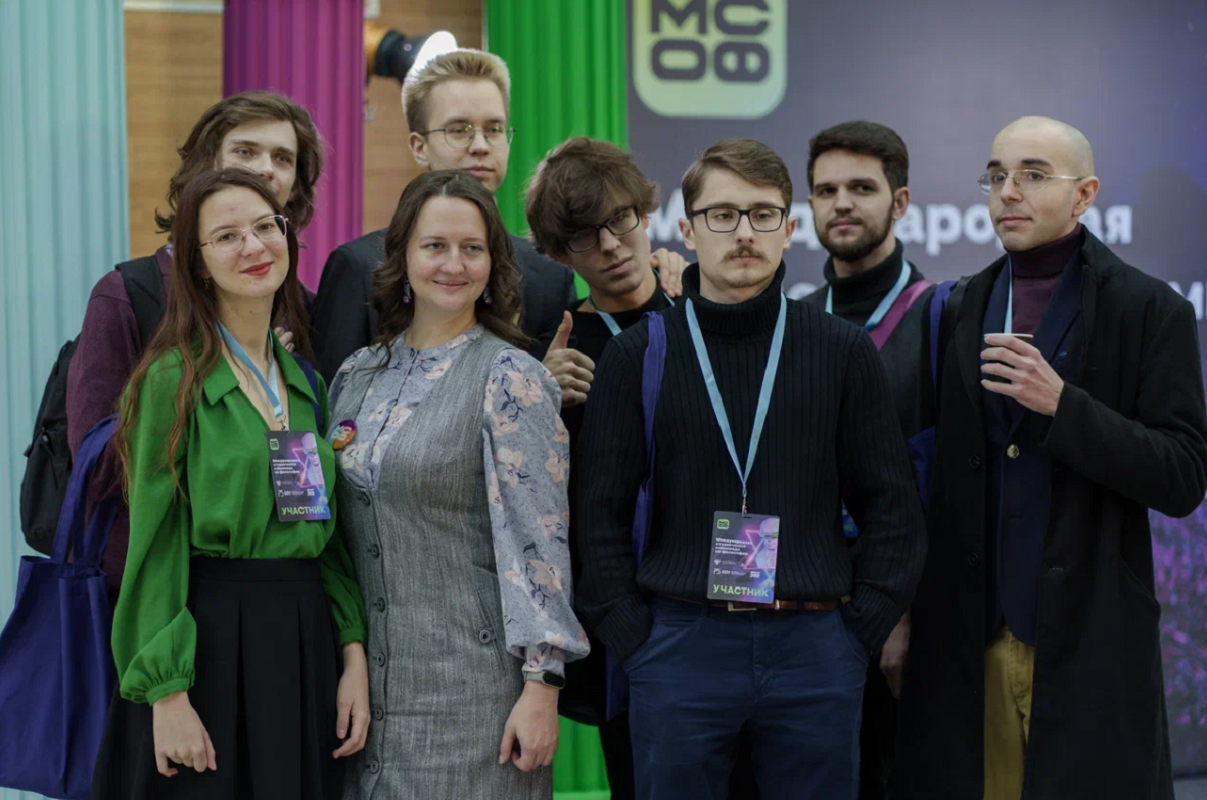St Petersburg University student wins the International Philosophy Olympiad for Students
This year, the International Philosophy Olympiad for Students has been held in Russia for the first time. The event was organised under the auspices of the Ministry of Science and Higher Education of Russia by Lomonosov Moscow State University and the Immanuel Kant Baltic Federal University.
Aleksandr Sobka, a third-year bachelor’s student of the Institute of Philosophy at St Petersburg University, became the winner of the 1st International Philosophy Olympiad for Students with his essay on the "Modern neurophilosophy and the issues of artificial intelligence". After the awards ceremony, he shared his impressions with us.
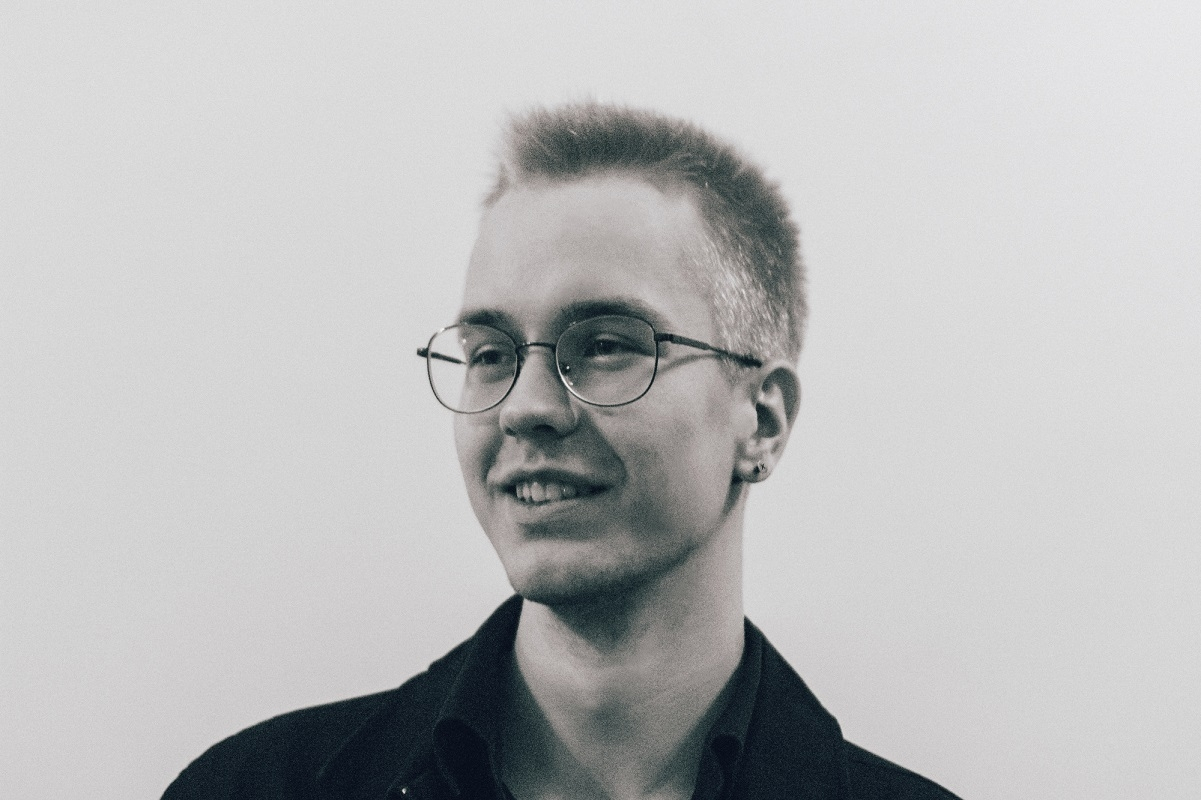
‘About the Olympiad, my classmates and I learnt from our curator — Associate Professor Igor Larionov. He advised that we take full advantage of this opportunity and enter the contest. He was right! It was an amazing experience. Students from across Russia and several foreign countries, including Spain, Germany and Taiwan, came to Kaliningrad. Such major scholarly events are very important for both students and academics. Lest we become isolated within the confines of the academic traditions of our university, we need to share our thoughts and learn to speak professionally, creating a common plane of understanding. Besides, it would be unfair to say that philosophers are spoiled by major contests. We all heard about forums and contests for economists, managers and programmers. For philosophers, on the other hand, there have been few such events. But this is really important. I believe it is essential that you feel that your input is wanted and needed, that your contribution is considered beneficial and significant.’
Over 400 students took part in the Olympiad — not only future philosophers, but also lawyers, sociologists, economists, teachers, mathematicians, culture experts, theologians, and others.
After the two rounds of the Olympiad, six winners were announced. Among them was Aleksandr Sobka, a student of the Institute of Philosophy at St Petersburg University. He scored 94 points — this is the highest score achieved in the two rounds of the Olympiad. The contest jury also named 12 prize-winners. Three of them are St Petersburg University students: Maksimilian Neapolitanskii, a student in the Philosophy programme; Anastasiia Shevarenkova, a student in the Applied Ethics programme; and Stepan Gavrilov.
Anastasiia Shevarenkova, a master’s student in the Applied Ethics programme, expressed her gratitude to her teachers: ‘The fact that I became a prize-winner can be regarded as evidence of the high level of teaching in my field of study. I would like to extend my thanks to the entire team of the Department of Ethics of the Institute of Philosophy, especially Head of the Department Vadim Perov and my research supervisor Associate Professor Elena Ovchinnikova. I would also like to thank my other teachers in the Institute of Philosophy at St Petersburg University: Associate Professors Igor Larionov, Elena Alymova, and Lada Tsypina, who taught me not to be afraid of things that appear incomprehensible at first.’
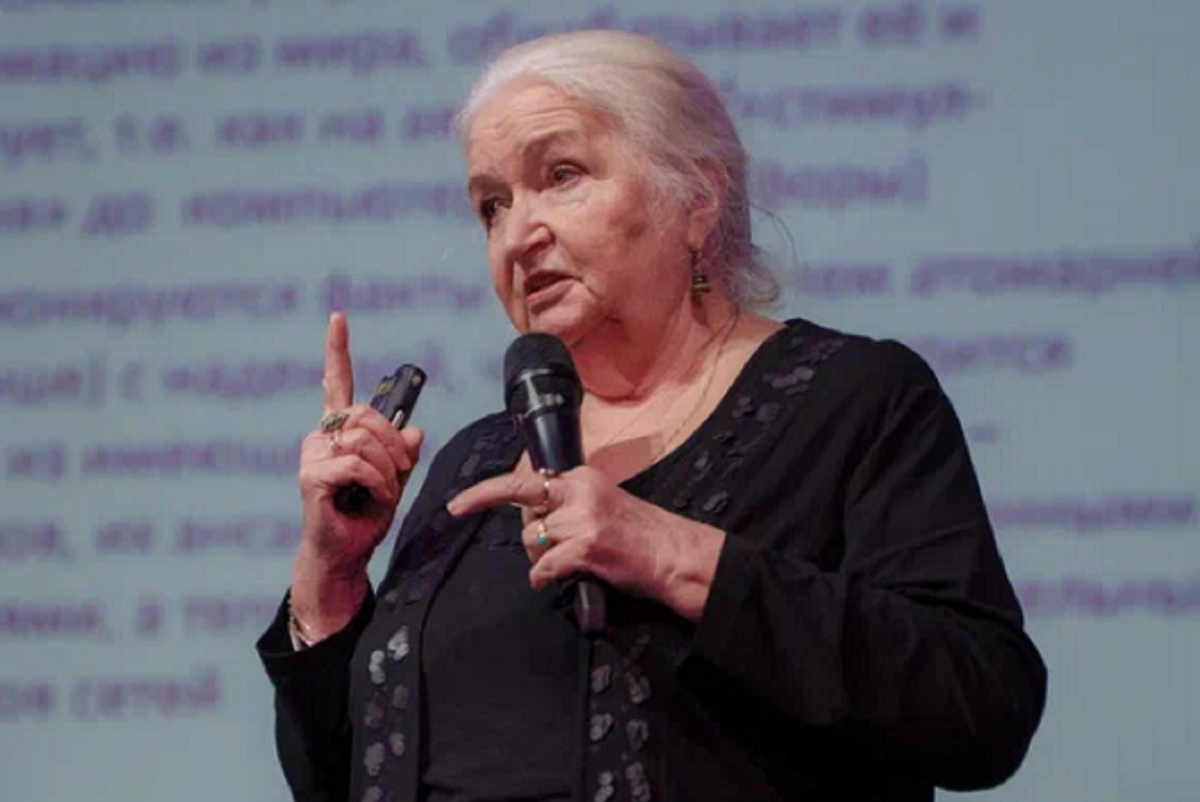
Professor Tatiana Chernigovskaya, Director of the Institute for Cognitive Studies at St Petersburg University, Corresponding Member of the Russian Academy of Education, Honoured Worker of Higher Education and Science of the Russian Federation, delivered a lecture for the participants in the 1st International Philosophy Olympiad for Students on the topic "The Brain as the Baroque".
Philosophers are people who have been taught to think in a disciplined way. They know how to ask the right questions.
From a lecture by Tatiana Chernigovskaya
Anton Alikhanov, Governor of the Kaliningrad Region, and Aleksey Kozyrev, Chairman of the Jury and Acting Dean of the Department of Philosophy at Lomonosov Moscow State University, offered congratulations to the winners and runner ups. They underlined the relevance of philosophical knowledge for young people and invited all students to take part in the Olympiad again in 2024 — in the year of the 300th anniversary of the great philosopher Immanuel Kant.


